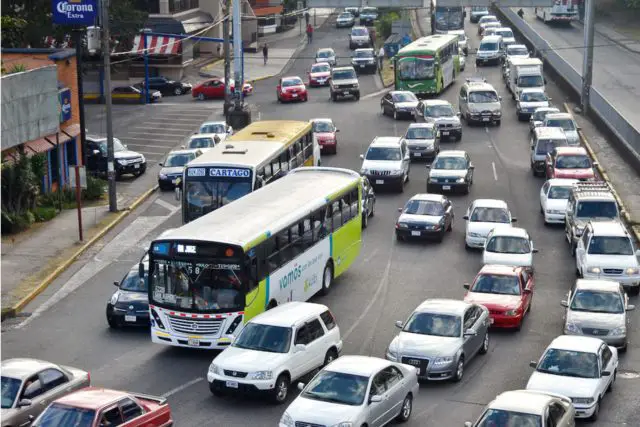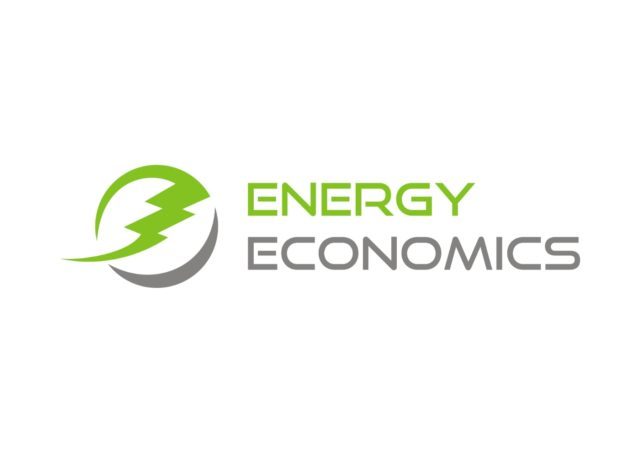An advertising postcard of Costa Rica shows a privileged country for substantial -intense rains- water and rivers, hydroelectric development benefited from allowing you to have stable energy coverage in 99% of the territory and applauded because less than 2% of its electricity it is generated with dirty fossil fuels. A green country, in which oil exploration is expressly prohibited and which is embarked on an aggressive Decarbonization Plan, with ambitious goals for 2050.
That postcard is true: the visible proof is the tangle of electrical cables that is integrated into the urban landscape of San José. Or the growing alternative energy projects that try to take advantage of the wind; the sun or the heat of the volcanoes with the idealistic purpose of abolishing the consumption of oil someday, as it abolished its armed forces in the middle of the 20th century.
The problem, however, travels daily in 1.4 million vehicles that are piled up on the Costa Rican roads moved by oil that a monopolistic state institution import at market price, and sells with a tax that is nourished by the committed public finances.
The relationship between cars and inhabitants is the 3rd highest in Latin America -only surpassed by Mexico and Argentina- and the transport sector contributes almost half of the emissions of polluting gases. The ethical authorities, through the promotion of the use of electric vehicles, have achieved that between 2017 and 2018 the imports of these will go from 71 units to 421. But these figures are still anecdotal: there is not a single bus with this technology, and without public transport, there is no effort that reaches, according to all the specialists consulted.

“The possibilities of the massive use of electric cars are limited. The key is in public transport and there is a huge gap”, warns Costa Rican engineer José Daniel Lara, Ph.D. in the Energy & Resources Group program at the University of Berkeley (California, USA). It is also recognized by the Costa Rican Association of Electric Mobility (Asomove), through its coordinator, Diana Rivera: “We are working to start electrifying transport, but we know that modernizing the bus network is a huge pending task, and that depends on a lot of business bus drivers”. They refer to a sector that, with diesel fuel, generates some US$ 400 million a year and takes place in an environment of low competition and great political influence to perpetuate state concessions.
Several Costa Rican governments have tried to reform public transportation, which moves almost a third of the population every day, but efforts have been unsuccessful. Electrification has not even been a topic. “And do not try: that investment cannot be assumed”, warns -under anonymity- a businessman from the center of the country.
The bet of the current Executive office, chaired by Carlos Alvarado, is, however, for electric mobility applied to the rail network with 2 feasibility studies of 2 train lines that would involve a joint investment of US$ 1,700 million, almost 10% of the Costa Rican budget. That would unite the cities of the center of the country, in 2024, and another cargo in the Caribbean region, key for its high port traffic.
Costa Rica has an ambitious goal; to achieve that in 2050 public transport will be “zero emissions” and substitute private vehicles as the main mobility option. It was raised by Alvarado in February, when he presented his Decarbonization Plan with Christiana Figueres, the Costa Rican anthropologist who was the architect of the Paris agreement against climate change in 2015. “If Don Pepe [his father, José Figueres, who governed the Central American country in 3 terms and abolished the Army] was with us today, he would also be explaining to us that peace does not hold if we cannot work and prosper in harmony with nature”, she emphasized.
The plan consists, in synthesis, in giving a twist to the development model. “To decarbonize the economy, we have to change the economy and the way of conceiving development, transport,
Some deputies even propose to eliminate the iconic prohibition to explore oil and lament the cost of electricity and fuel for businessmen and domestic consumers. The criticisms are also directed against the costly state monopoly model that controls the importation of oil and the distribution of electricity through 2 sensitive and controversial institutions in the national discussion, the Costa Rican Petroleum Refinery (
For Lara, the opportunities are numerous, but the institutional framework needs profound changes to adapt to the times and financial constraints. “It is not clear how the investments already made and those that should be made are balanced without implying a blow to the economy”, warns engineer Lara.
This week Alvarado had to suspend the decision of


